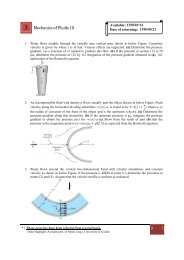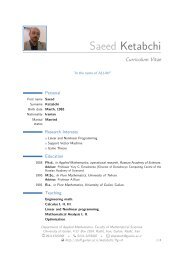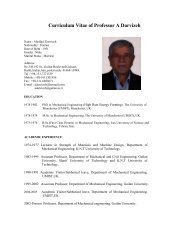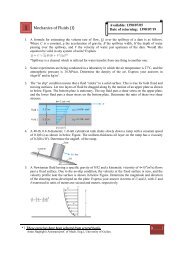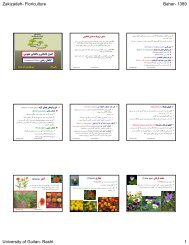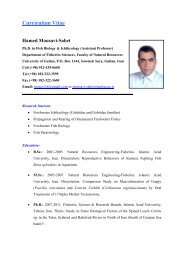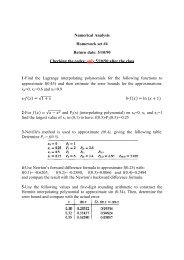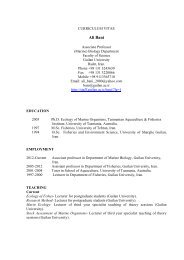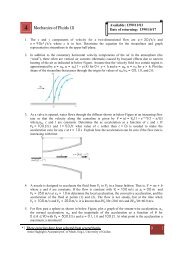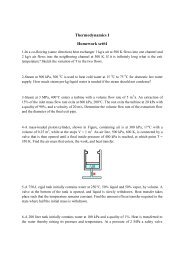Medical Tourism in Developing Countries
Medical Tourism in Developing Countries
Medical Tourism in Developing Countries
- No tags were found...
You also want an ePaper? Increase the reach of your titles
YUMPU automatically turns print PDFs into web optimized ePapers that Google loves.
Promot<strong>in</strong>g <strong>Medical</strong> <strong>Tourism</strong> ● 101human capital must be appropriate for local conditions, otherwise itsproductivity-enhanc<strong>in</strong>g properties cannot be fully exploited. <strong>Medical</strong> tourismrequires a wide variety of skills to satisfy the wide range of manpowerdemands.The medical tourism <strong>in</strong>dustry necessitates a wide range of skills that arenot distributed along a bell shaped curve, but rather are concentrated at thetwo ends. The result of this bipolar distribution is a sharply segregated duallabor market. At one end, lie the highly skilled doctors, nurses, researchers,as well as the Westernized resort managers (<strong>in</strong> all likelihood hold<strong>in</strong>g bus<strong>in</strong>essdegrees and fluent <strong>in</strong> several languages). They embody the humancapital that is the backbone of large-scale, organized medical tourism as wellas the hospitality <strong>in</strong>dustry. At the other end, lie the unskilled and uneducatedlocal populations with few employment alternatives. They are thehospital janitors, the hotel chambermaids, and the rental car washers.With respect to sheer size, most employment <strong>in</strong> the labor-<strong>in</strong>tensive tourist<strong>in</strong>dustry tends to be low skilled, barriers to entry are m<strong>in</strong>imal, and workerturnover is high. With respect to <strong>in</strong>come earned, the advantages are <strong>in</strong> favorof the highly skilled workers.Which workers are more important for the development of medicaltourism? Some scholars claim it is the highly skilled workers <strong>in</strong> whoseabsence the <strong>in</strong>dustry would not get off the ground. Indeed, it has beenclaimed that African countries have not realized their tourism potentialbecause they lack general economic management skills and <strong>in</strong> particular,specific management skills with<strong>in</strong> the tourism sector. 18 On the other hand,the unskilled perform a crucial function and <strong>in</strong> their absence, the <strong>in</strong>dustrywould not be able to function.When appropriately skilled labor is available locally then the number ofexpatriate workers can be reduced and/or the costs of tra<strong>in</strong><strong>in</strong>g labor abroadcan be elim<strong>in</strong>ated. This benefits the local population <strong>in</strong> the form of<strong>in</strong>creased employment, and for foreign companies, it represents a cost-sav<strong>in</strong>gmeasure.With respect to quantity, it is necessary to identify the optimal size <strong>in</strong>order to avoid a surplus or shortage of workers. Dur<strong>in</strong>g a surplus, thereare too many workers and the economy cannot absorb them. They becomeredundant, and their overabundance acts as a drag on the economy. In somedevelop<strong>in</strong>g countries, bra<strong>in</strong> dra<strong>in</strong> relieves the demand for employmentwhile arrest<strong>in</strong>g the downward pressure on wages and the stra<strong>in</strong> on <strong>in</strong>frastructure.For this reason, regions with high population densities and<strong>in</strong>sufficient opportunities for their workers encourage out-migration. Thisis often supported by the central government as part of a regional policy(as <strong>in</strong> the Philipp<strong>in</strong>es). However, it is very costly, especially <strong>in</strong> the case of



